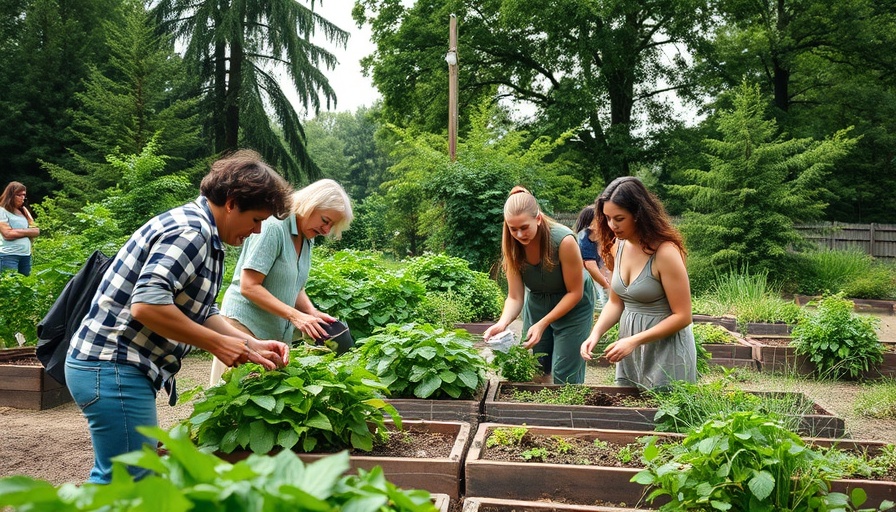
Turning Waste into Opportunity: The Power of Community Composting
In an era defined by sustainability goals and eco-conscious living, the potential of community composting is blossoming into a source of economic growth for neighborhoods worldwide. The Community Composter Coalition, a vibrant network of over 350 diverse organizations, from urban farmers to local schools, is demonstrating how composting can transform community waste into green jobs and educational opportunities.
The Backbone of Local Economies: How Community Programs Flourish
Community composting does more than just recycle food waste; it infuses local economies with new vigor. Clarissa Libertelli, manager of the coalition, highlights that these small-scale initiatives produce a high-quality soil amendment that nurtures local gardens while simultaneously creating jobs. Expecting a typical industrial composting operation to handle a large volume of waste could overshadow the smaller, grassroots efforts. However, studies indicate that community composters often employ more individuals per weight of waste processed compared to larger counterparts. This employment model fosters a circular economy—one where local resources are recycled back into the neighborhood.
Nourishing Social Justice: The Broader Impact of Composting Initiatives
Beyond cleanliness and economy, community composting projects frequently engage in social and environmental justice efforts. Many organizations within the coalition actively work to address food deserts by growing fruits and vegetables where fresh produce might not otherwise be accessible. They also rehabilitate contaminated land and provide job opportunities for individuals with criminal histories, proving that composting can equally enrich community ties and offer paths towards rehabilitation.
A Snapshot of Success: Local Models of Community Composting
Across various cities, the innovative approaches to composting yield standout examples worth emulating. For example, L.A. Compost began with volunteers on bicycles and has grown into a sophisticated hub-and-spoke model. Last year alone, they successfully diverted an astonishing 4 million pounds of organic waste from landfills. Similarly, in New York City, youth-led BK Rot picks up compostables via bicycle, illustrating the possibility of combining sustainability with entrepreneurial spirit.
Practical Steps for Boutique Hospitality Professionals
As boutique hospitality professionals, integrating community composting programs into your operations can elevate your brand's commitment to sustainability. Consider creating partnerships with local composting services to manage food waste from guest meals and events. This collaboration not only contributes to a greener planet but aligns your business with local, innovative sustainability efforts, appealing to eco-conscious travelers.
Future-Ready Solutions: Composting’s Role in Urban Farming and Renewable Energy
Community composting paves the way for urban farming initiatives, which align beautifully with the concepts of off-grid solar and corporate sustainability. As communities become more self-sufficient in producing food, the reliance on fossil fuels decreases, promoting a cleaner environment. This intertwining of composting and urban agriculture is crucial in combating climate change and supporting food sovereignty.
Conclusion: The Urgent Call to Action
Community composting is not simply an environmentally friendly initiative; it’s a powerful economic engine that can rejuvenate neighborhoods while addressing critical social issues. By joining forces with local compost programs, you can demonstrate your commitment to sustainability goals and attract more guests who value eco-conscious travel. Let’s recycle waste together and cultivate a greener future for all.
 Add Row
Add Row  Add
Add 




Write A Comment